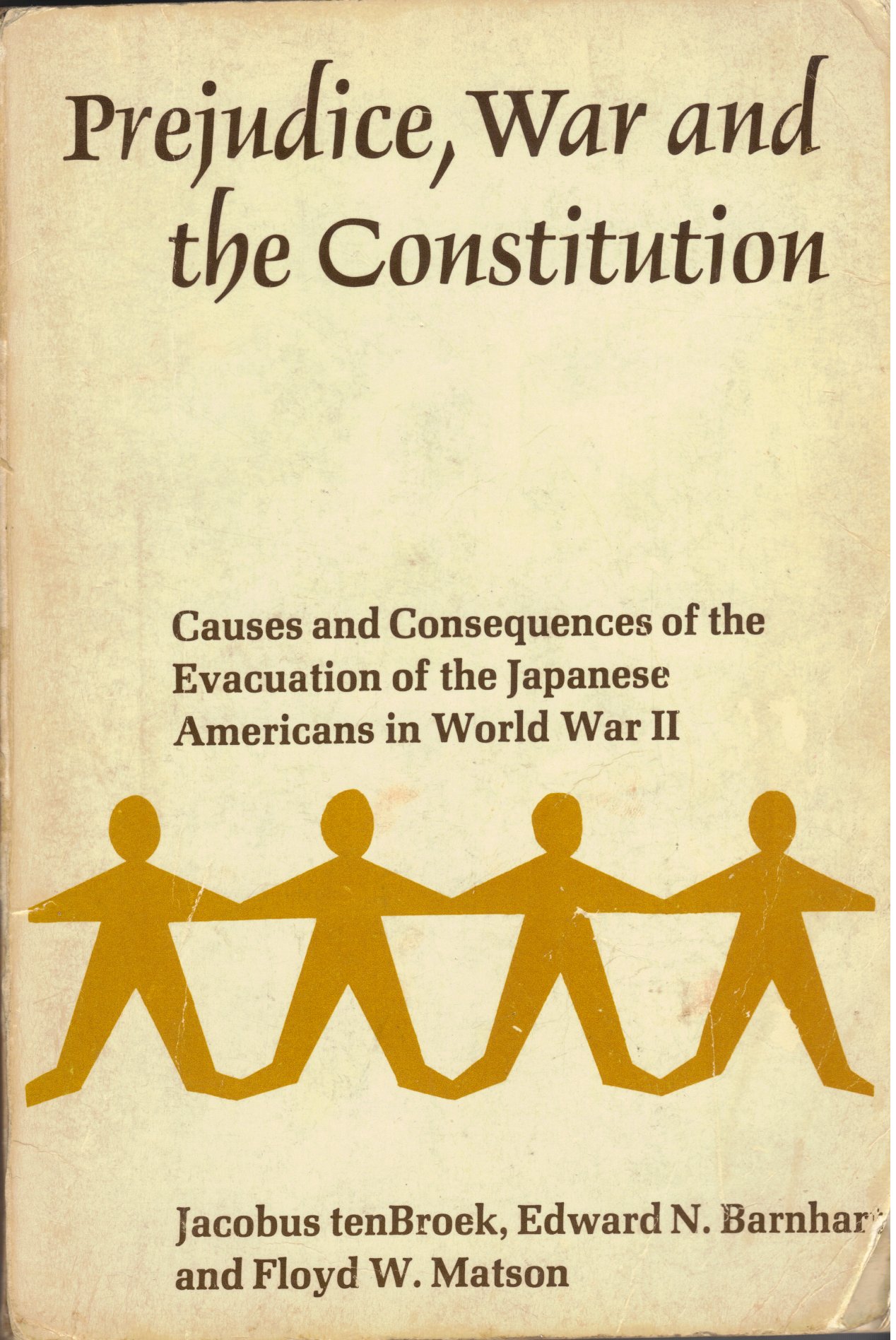

Prejudice, War and the Constitution

408 pages. 61 pages of notes. 1954.
One of the things that I have found in my research on the Pacific War and the internment is that, oftentimes, the oldest books are the best sources. This is one of the examples. Written in rather small type it contains a lot of details I have not seen in other books on the subject. There's a major emphasis on what led up to the interment, for example.
The first section goes into the history of the Japanese in the U.S. and how prejudice against them basically grew out of prejudice against the Chinese immigrants. This section also examines the various types of work the Japanese immigrants did and what groups of whites had major jealousy of their success (the farmers) and what groups were more ambivalent about them (businessmen.)
Then it moves on to the issue of prejudice and how prejudice grew against the Japanese and how a stereotype developed of the Japanese immigrants. It also goes into specific groups that formed that were extremely anti-Japanese and what influence these groups had on the decision to exclude the persons of Japanese ancestry (PJA) from the West Coast.
The rest of the book deals with the influence of particular groups on the decision to exclude the internees and keep them there for the whole war, whether or not to allow some of them to leave to help harvest crops and whether or not to allow some to leave to go to schools in the Eastern part of the country.
This also brings up something interesting to me. If these people were all forced out of their homes on the West Coast because it was felt they were not trustworthy, then why let them leave the camps later while the war was still going on? If they were 'bad' people wouldn't it have made more sense to keep them all together where they were rather then let them out?
Which the obvious answer was that they were not 'bad' people. Those who could have been considered a potential threat were either locked up right after the attack on Pearl Harbor or they pretty much all ended up at the Tule Lake center.
This is a book that is definitely worth reading if you are at all interested in what was one of the absolute worst examples of prejudice leading to the abuse of innocent people. (Slavery being the worst abuse without any doubt.)
Main Index
Japan main page
Japanese-American Internment Camps index page
Japan and World War II index page
|